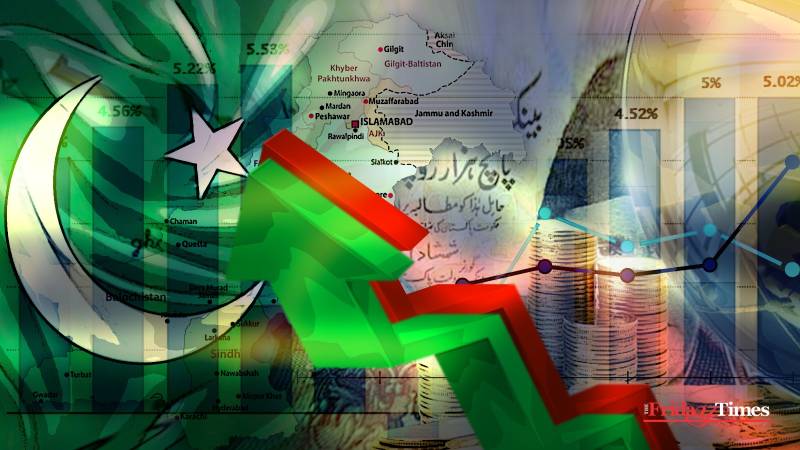
With Pakistan's economy seriously overburdened, the ongoing International Monetary Fund (IMF) programme will be pivotal for the country's efforts to reform and achieve financial stability. In such a context, tax inequalities are being pointed out as a matter of developing more equitable fiscal policies. For instance, petroleum levy worth Rs60 per litre for motorcycle and rickshaw drivers, who are generally among the less-affluent people. On the contrary, high-octane fuel, which the wealthy classes use, has a levy of only Rs50 per litre. This regressive structure not only amplifies economic inequality but also raises questions over the fairness of the tax system.
Economic inequality further widens as the government has set Rs32,000 as the minimum wage, but the enforcement of this policy remains inconsistent. Statistics suggest that a significant number of workers, perhaps over 60%, are not receiving this mandated minimum wage. This shortfall is occurring within an economic environment where the rate of inflation is persistently higher than salary increments, exacerbating the financial strain on workers.
The World Bank projects that Pakistan's average annual Gross Domestic Product (GDP) growth will remain stagnant at 1.7% from Fiscal Year 2023 to Fiscal Year 2026, potentially the lowest on record since 1950. This points toward a slowdown period that might risk deepening the country's cycle of debt accumulation and financial vulnerability.
The month of March 2024 proved to be the peak of crisis thus far, as the Consumer Price Index (CPI) recorded inflation at 20.7%, yet another surge since May 2022. Although there was a slight plunge due to the high policy rate, the relief was minuscule since there were always surges of inflationary increases — more so in food prices during Ramazan, when it had spiked at 2.9% from suppliers' greed more so than amplified demand. This has been linked to political instability and financial turmoil worsening day by day. From 2022 onwards, the country's political instability has severely hampered its economic performance, and GDP growth has barely touched one percent in the second quarter of the Fiscal Year 2024.
This growth was only slightly buoyed by a 5% increase in agriculture, while industrial and service sectors continue to decline; this situation seems to reflect the depressing effect of political unrest as well as governance problems that have been affecting economic stability for years now. The situation, therefore, necessitates that Pakistan must adopt a proactive strategy with pronounced fiscal discipline, along with safeguarding the poor from difficult financial conditions. In this backdrop, progressive tax reforms are essential in order to ensure that the wealthier sections of Pakistani society pay their fair share.
The expansion of Pakistan's tax gap can be linked to several interconnected factors, such as fragmented tax administrations, weak enforcement, low compliance, generous and distortionary exemptions and concessions, and a persistently narrow tax base overall
Other measures should also be taken to mitigate the magnitude of the negative impact caused by inflation and economic restructuring. These include improvements in social safety nets, making sure that subsidies go directly to the poor, and investment in areas where sustainable growth is likely to be attained. The "Special Procedures for Small Traders and Shopkeepers Scheme" has been launched to include dealers, retailers, and manufacturer-cum-retailers all over major cities, including Karachi, Lahore, Islamabad, Rawalpindi, Quetta, and Peshawar. However, its exclusion of some major trade hubs like Faisalabad raises questions on the coverage measure.
Under-taxation continues to pose a serious challenge in Pakistan, with the country collecting only 10.4% of its GDP in taxes and facing an estimated tax gap exceeding 50% of current collections. A significant portion of this gap is due to inadequate income tax collections. The expansion of Pakistan's tax gap can be linked to several interconnected factors, such as fragmented tax administrations, weak enforcement, low compliance, generous and distortionary exemptions and concessions, and a persistently narrow tax base overall. Addressing these issues is crucial for Pakistan to adequately fund public service delivery, enhance social protection spending, and reduce compliance costs for taxpayers. If properly collected, income taxes could serve as the most progressive form of taxation, effectively redistributing wealth and reducing income inequality.
Key reforms for the income tax regime in Pakistan should include harmonising income tax structures, rationalising income tax rates, widening the tax base, and improving overall tax administration. Additionally, reducing trust deficits between the public and the government is necessary for increasing tax compliance and effectiveness. By undertaking these reforms, Pakistan can take significant strides towards achieving fiscal sustainability and improving economic conditions for its populace.
As Pakistan navigates these treacherous waters, lessons from global peers and a vision for ensuring equity in economic policies will matter significantly. Through these steps, the economy of Pakistan is expected to stabilise and become an environment in which economic growth becomes sustainable and inclusive. Growth must be achieved by aligning the recommendations of the IMF with the socioeconomic needs of Pakistan and ensuring a fair, if not equal, distribution of the burden of adjustment. This is not only an exercise for balancing the revenues and expenditures but also laying the foundation for a future whereby prosperity can be shared much wider and development becomes sustainable.
However, the IMF's role, while crucial in stabilising the economy through financial support, demands a careful balancing act from Pakistan. The prescribed austerity measures and inefficient subsidy cuts, although potentially stabilising in the long run, often lead to immediate hardships. The IMF experience of Egypt, which involved substantial economic restructuring, including currency devaluation and interest rate hikes, serves as a potent reminder of the pains such reforms can induce.

